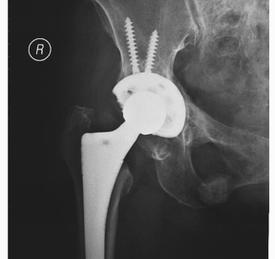Salt is good for you?

tripped1
Posts: 1
A recent report commissioned by the Center for Disease Control (CDC) reviewed the health benefits of reducing salt intake and the take-home message is that salt, in the quantities consumed by most Americans, is no longer considered a substantial health hazard. What the CDC study reported explicitly is that there is no benefit, and may be a danger, from reducing our salt intake below 1 tsp per day. What was absent about the report was is the difference between healthy mineral salts and iodized table salt.
http://wreg.com/2013/07/11/cdc-admits-there-is-no-benefit-in-reducing-salt/
they say full report is here
http://preventdisease.com/news/13/062113_CDC-Admits-Long-Standing-Error-in-Medical-Science-There-Is-No-Benefit-In-Reducing-Salt-Intake-May-Even-Be-Dangerous.shtml?utm_source=062113&utm_campaign=062113&utm_medium=email
http://wreg.com/2013/07/11/cdc-admits-there-is-no-benefit-in-reducing-salt/
they say full report is here
http://preventdisease.com/news/13/062113_CDC-Admits-Long-Standing-Error-in-Medical-Science-There-Is-No-Benefit-In-Reducing-Salt-Intake-May-Even-Be-Dangerous.shtml?utm_source=062113&utm_campaign=062113&utm_medium=email
0
Replies
-
Salt is essential. Some people take cutting it down to extremes and end up with low blood pressure or worse.0
-
You definitely need a reasonable amount of salt to function. Just because too much is bad for you doesn't mean that too little is any better.0
-
You definitely need a reasonable amount of salt to function. Just because too much is bad for you doesn't mean that too little is any better.
Agreed!!0 -
An important thing to include here is that there are two natural salts found in natural foods, sodium and potassium.
In nature, most foods have a high amount of potassium, and significantly less sodium. If you look at the average components in processed foods, that gets flipped. There's way more sodium, and often very little potassium. Interestingly, there is no minimum requirement for potassium, so it is optional to list on nutritional information labels.
There was some research a few years ago suggesting that the negative impacts of excessive sodium were diminished by increasing potassium consumption back to a similar level as what would have been found in natural foods. Likewise, there were some successful treatments of hypertension using potassium supplements.
Interesting stuff.0 -
A reasonable amount, though, is somewhere around 2-500mg/day...most people take that to either of the two extremes, myself included. And let's not forget that most fruits and veggies contain sodium, too - you can easily hit your needed intake for the day by having some fruit with breakfast and lunch.0
-
An important thing to include here is that there are two natural salts found in natural foods, sodium and potassium.
In nature, most foods have a high amount of potassium, and significantly less sodium. If you look at the average components in processed foods, that gets flipped. There's way more sodium, and often very little potassium. Interestingly, there is no minimum requirement for potassium, so it is optional to list on nutritional information labels.
There was some research a few years ago suggesting that the negative impacts of excessive sodium were diminished by increasing potassium consumption back to a similar level as what would have been found in natural foods. Likewise, there were some successful treatments of hypertension using potassium supplements.
Interesting stuff.
^^that. I tell a lot of my patients with hypertension to focus on increasing dietary potassium in combination with sodium restriction.0 -
I'm hypertensive. It's all about balance. Balancing my potassium and sodium intake has been the most important factor for me. Also, both are necessary minerals...and the more you workout (and sweat) the more of both you need. Even being hypertensive, I don't know why/how people cut sodium sooooo low...I'd be cramping up after a mile.0
-
I'm hypertensive. It's all about balance. Balancing my potassium and sodium intake has been the most important factor for me. Also, both are necessary minerals...and the more you workout (and sweat) the more of both you need. Even being hypertensive, I don't know why/how people cut sodium sooooo low...I'd be cramping up after a mile.
From what I understand, cramps are usually a result of low potassium, not sodium..?0 -
idk, seems to me that if you eat one or two things out of a bag then you've met or exceeded your recommended salt intake for the day.
you have to work pretty hard to keep the sodium oober low in my opinion0 -
always thought salt dehydrated you, but i've read that the army and some football programs would give out salt tabs to help prevent dehydration/cramping.0
-
Of course your body needs salt. Any athlete or medical professional that deals with athletes can tell you that. The idiotic recommendations that have come out over the years are an attempt to make up with diet what really needs to be solved with exercise.0
-
What was absent about the report was is the difference between healthy mineral salts and iodized table salt.
Flavor, minor traces of minerals and color?
Iodine is an essential nutrient for thyroid health.
Edit: or/of typo0 -
Of course your body needs salt. Any athlete or medical professional that deals with athletes can tell you that. The idiotic recommendations that have come out over the years are an attempt to make up with diet what really needs to be solved with exercise.
QFT.0 -
What was absent about the report was is the difference between healthy mineral salts and iodized table salt.
Flavor, minor traces or minerals and color?
Iodine is an essential nutrient for thyroid health.
Yea, but sometimes people have to grasp at straws. It's like listening to arguments that honey is superior to sugar and that HFCS is the devil. It does line the pockets of the health food industry though.0 -
That is interesting stuff. Increasing potassium can help with health problems as well (if you are low on it, or something else is throwing off it's balance of course). People need to stop with this none or all this is better then that attitude. It's not that such and such is good and the other is evil...It really is a balance. If you are low on calcium for example, massive amounts of calcium may not help you absorb it unless you fill in the rest of the nutrients (or fat) you need to absorb it for example. Another example, I stayed away from fat when I was stupid enough to do the low cal thing just for the sake of saving calories and ran into some nutrient deficiencies because I wasn't getting enough fat to absorb the gigantic amounts of veggies I was eating all day. Good food in excess can also be bad. Even bad food can help in certain situations. I've been harassed for eating deep fried cod for example, but I'm constantly low on iron. If I didn't know better and stopped eating cod thus stop getting iron, well, that could be a bad scene.An important thing to include here is that there are two natural salts found in natural foods, sodium and potassium.
In nature, most foods have a high amount of potassium, and significantly less sodium. If you look at the average components in processed foods, that gets flipped. There's way more sodium, and often very little potassium. Interestingly, there is no minimum requirement for potassium, so it is optional to list on nutritional information labels.
There was some research a few years ago suggesting that the negative impacts of excessive sodium were diminished by increasing potassium consumption back to a similar level as what would have been found in natural foods. Likewise, there were some successful treatments of hypertension using potassium supplements.
Interesting stuff.
Also there are some health problems where they recommend you get extra salt. A friend of mine has that problem...she enjoys her nachos regularly.0 -
always thought salt dehydrated you, but i've read that the army and some football programs would give out salt tabs to help prevent dehydration/cramping.
They never did that when I was in the Army (1982-1989) and I'm very thankful for that.
The Army does a fair amount of stupid stuff, like any large organization, but they tend to do less stupid stuff for a variety of reasons. Unfortunately, they're still on the "drink, drink, drink" mantra but they didn't buy into the that idea there's a connection between salt intake (or depletion) and muscle cramps.
We do not know why muscles cramp but the theory that seems to fit the best is that cramps occur when the muscles ability to relax is impaired due to fatigue. Note that it's not that the entire muscle is impaired but that the ability to relax is impaired.
For further info on this and a lot of other topics, grab a copy of "The Lore of Running" by Dr. Tim Noakes. It's a large book (about 1k pages) and will run you (pardon the pun) about $20 or $25 but it's a wealth of information with actual research (!!), footnotes, discussions of competing theories, etc.
And if you're interested in understanding the science behind "8 cups a day"*, grab a copy of Dr Noakes book on water consumption - "Waterlogged: The Serious Problem of Overhydration in Endurance Sports"
*we know that Dr. Valtin's research destroys the myth, as well, per his findings here:
http://www.dartmouth.edu/~news/releases/2002/aug/080802.html
http://ajpregu.physiology.org/content/283/5/R993.full0 -
And to add to that other things that add to dehydration is exercise, sweating, protein, other spices (which contains nutrients)...all things that are essential to keeping a person healthy.always thought salt dehydrated you, but i've read that the army and some football programs would give out salt tabs to help prevent dehydration/cramping.
They never did that when I was in the Army (1982-1989) and I'm very thankful for that.
The Army does a fair amount of stupid stuff, like any large organization, but they tend to do less stupid stuff for a variety of reasons. Unfortunately, they're still on the "drink, drink, drink" mantra but they didn't buy into the that idea there's a connection between salt intake (or depletion) and muscle cramps.
We do not know why muscles cramp but the theory that seems to fit the best is that cramps occur when the muscles ability to relax is impaired due to fatigue. Note that it's not that the entire muscle is impaired but that the ability to relax is impaired.
For further info on this and a lot of other topics, grab a copy of "The Lore of Running" by Dr. Tim Noakes. It's a large book (about 1k pages) and will run you (pardon the pun) about $20 or $25 but it's a wealth of information with actual research (!!), footnotes, discussions of competing theories, etc.
And if you're interested in understanding the science behind "8 cups a day"*, grab a copy of Dr Noakes book on water consumption - "Waterlogged: The Serious Problem of Overhydration in Endurance Sports"
*we know that Dr. Valtin's research destroys the myth, as well, per his findings here:
http://www.dartmouth.edu/~news/releases/2002/aug/080802.html
http://ajpregu.physiology.org/content/283/5/R993.full
And they may give out the salt tablets for the potassium. Many people believe it prevents cramping...I don't think it's ever been proven beyond doubt. I guess it's one of those things where you need to 'keep the balance'0
This discussion has been closed.
Categories
- All Categories
- 1.4M Health, Wellness and Goals
- 394.1K Introduce Yourself
- 43.9K Getting Started
- 260.4K Health and Weight Loss
- 176.1K Food and Nutrition
- 47.5K Recipes
- 232.6K Fitness and Exercise
- 437 Sleep, Mindfulness and Overall Wellness
- 6.5K Goal: Maintaining Weight
- 8.6K Goal: Gaining Weight and Body Building
- 153.1K Motivation and Support
- 8.1K Challenges
- 1.3K Debate Club
- 96.4K Chit-Chat
- 2.5K Fun and Games
- 3.9K MyFitnessPal Information
- 15 News and Announcements
- 1.2K Feature Suggestions and Ideas
- 2.7K MyFitnessPal Tech Support Questions











